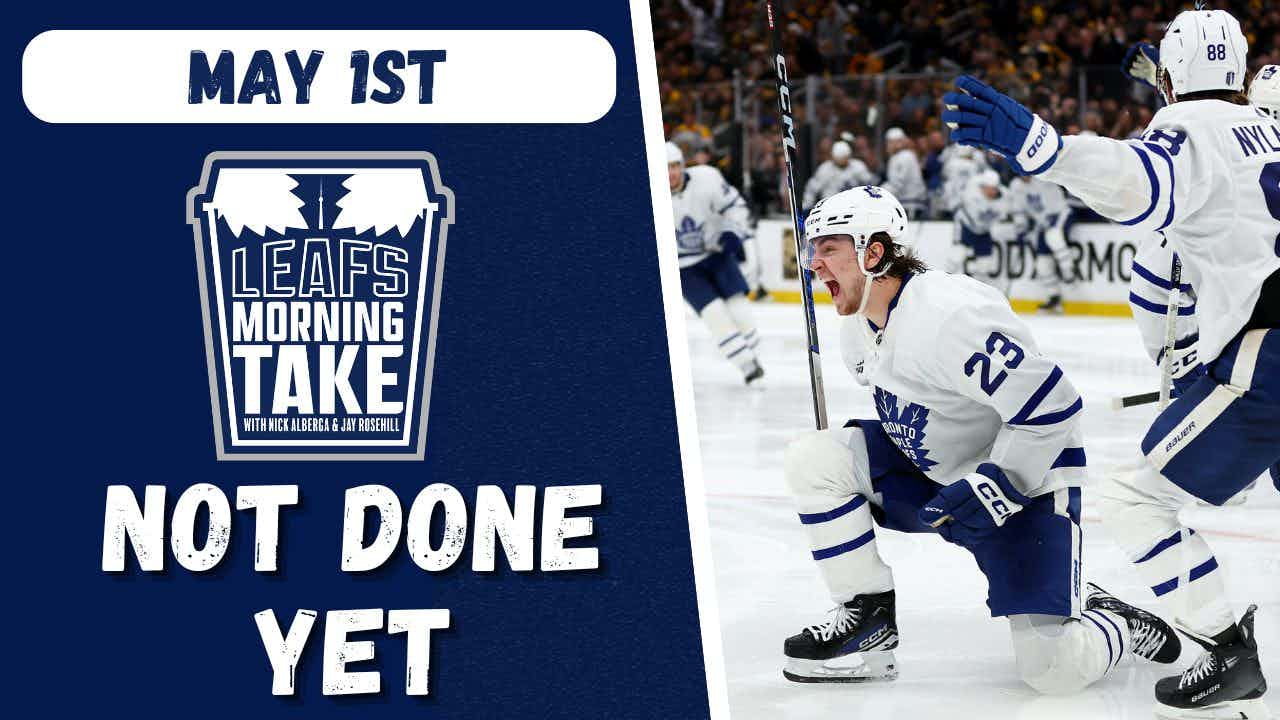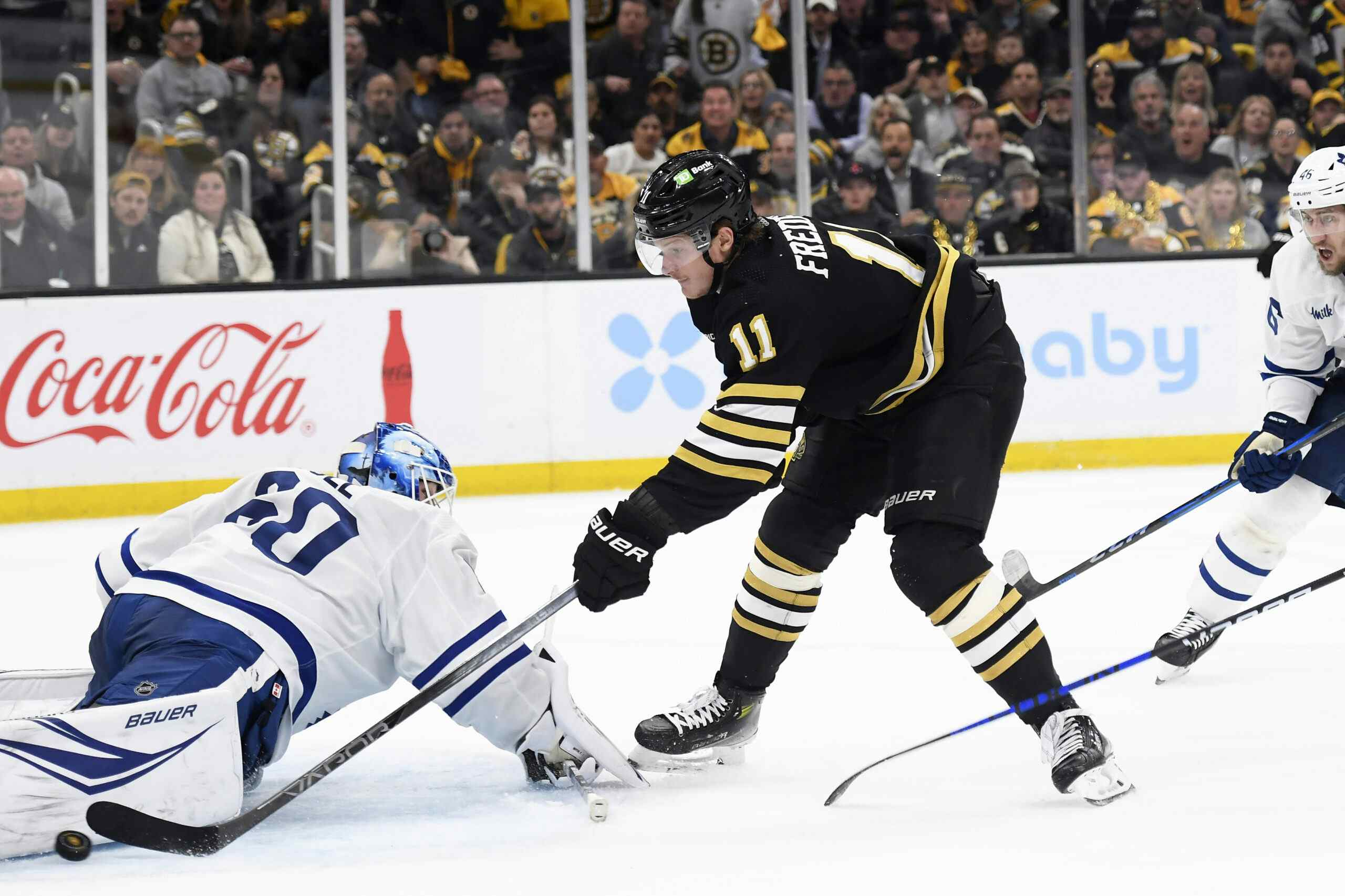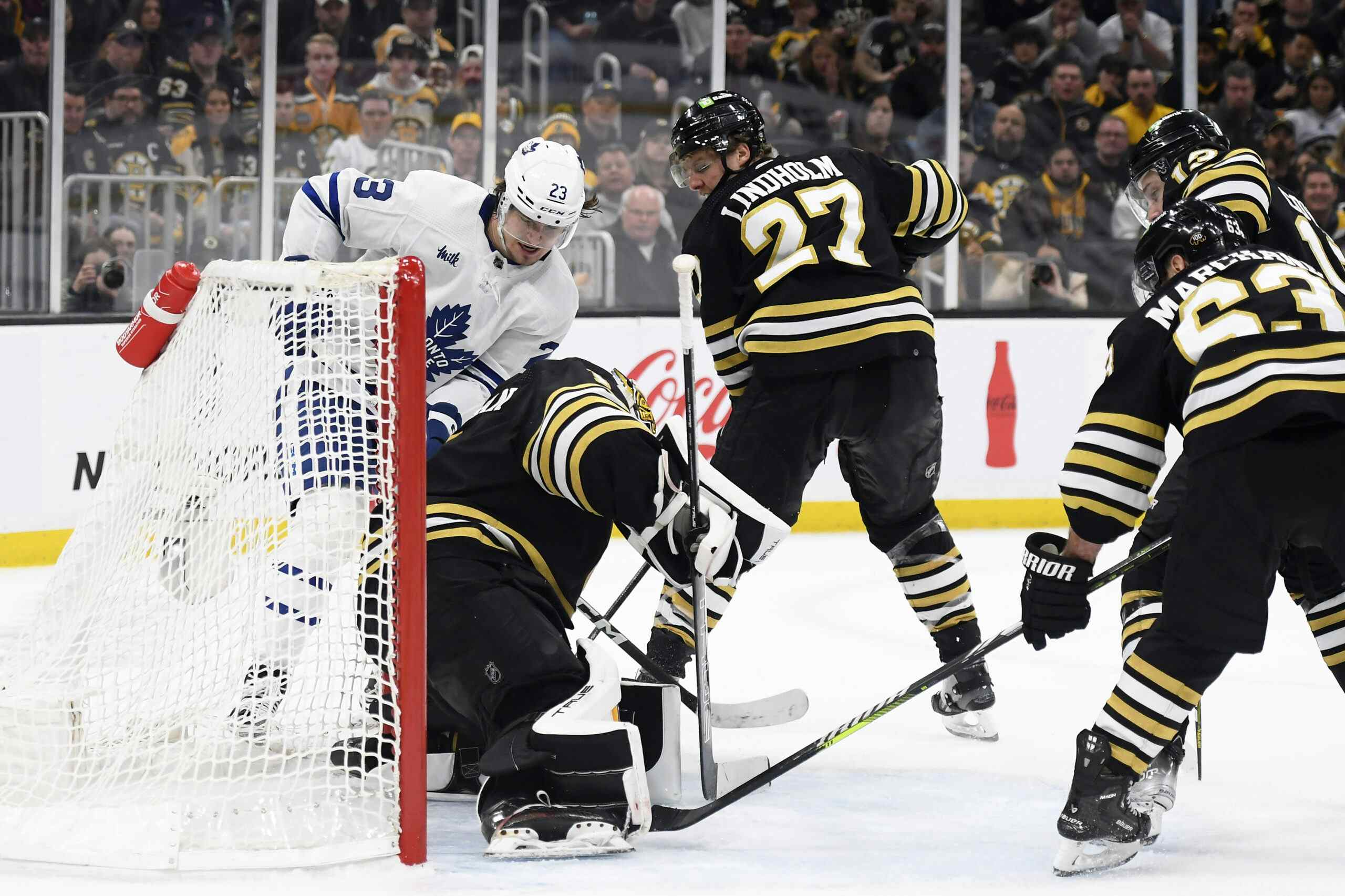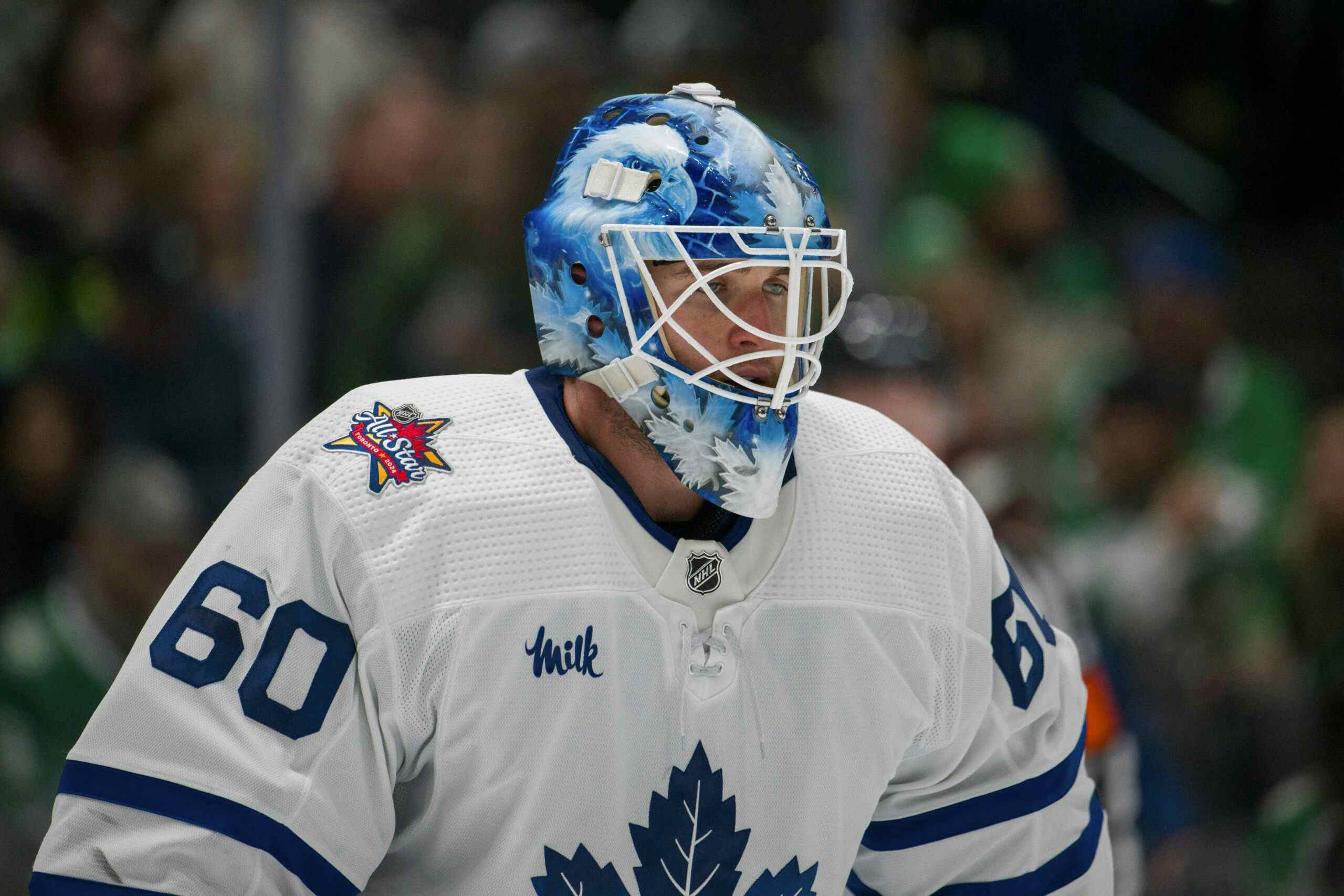2016-17 Leafs’ Season in Review: Mitch Marner
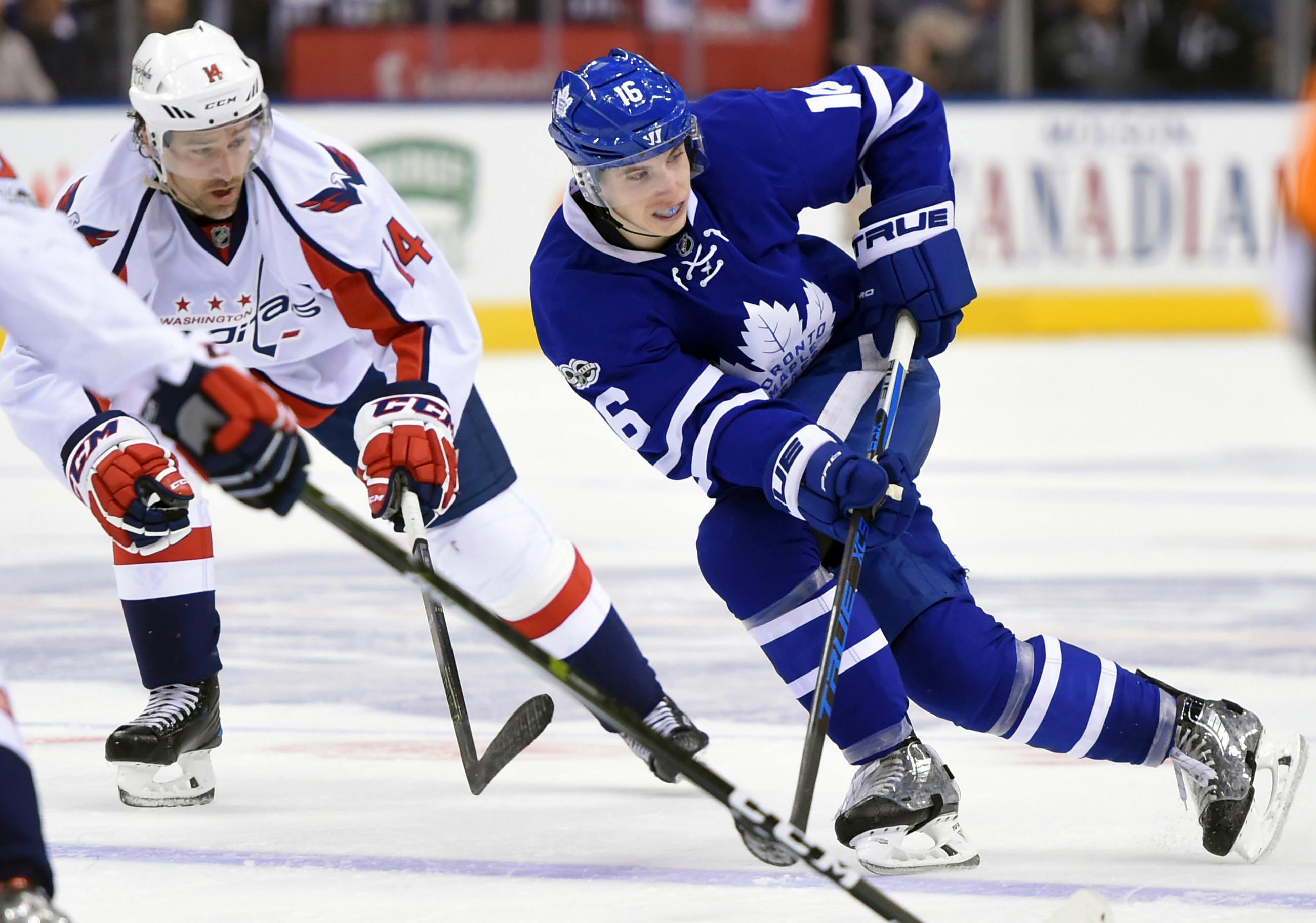
Just a little over a year ago, Mitchell Marner was winding down his junior days and playing what was then the best hockey of his life.
The co-captain of the London Knights, Marner was all the talk of junior hockey in his draft+1 year as everyone clamoured to catch a glimpse of the league’s best prospect.
After winning the OHL MVP, the CHL MVP, the OHL Championship, the OHL playoff MVP, the Memorial Cup, and the Memorial Cup MVP, you’d expect people to you know, appreciate that. While it was just about impossible to criticize an all-world junior season, people quickly shifted their focus to Marner’s ability to step it up to the next level.
If we took his OHL playoff performance (44 points in 18 games), it’d give us an NHLe of… 61.3.
Even though a strong NHL campaign come October 2016 seemed like the natural progression for the youngster, others weren’t so sure. There was still a vocal enough contingent of the fanbase, the media, and the general hockey community that maybe the kid wasn’t quite cut out for the NHL just yet, and if he’d even stick as an impact player just yet.
Though he’d grown to either six feet or just a hair under it, many of his detractors pointed to his weight, some offensive tendencies that wouldn’t translate to the NHL, his two-way game, and everything they could fit into 140 characters (or less).
While the concerns had mostly graduated from the level where some believed he wouldn’t be an NHL player at all, the cloud of doubt still hung above Marner’s name.
By the time September rolled around and more and more signs pointed to him making the opening day roster, a new discussion re-opened: was he better than William Nylander? Was he the 2nd or 3rd best prospect in the organization? Who would have the better year?
In his first year in the NHL, Marner scored 19 goals and a Leafs rookie record of 42 assists, giving him… 61 points on the season. (Nylander, FWIW, also hit exactly 61 points). Would you look at that?
He followed it up with four points in six playoff games, and then went over to France and Germany and dominated the World Championships, picking up 12 points in 10 games en route to a silver medal.
Yeah, this kid can stay with the big boys.
Strengths:
- Consistency. Marner didn’t go more than 4 games in a row all year without a point, which is astounding for any players, much less a rookie.
- Playmaking. Marner led the team with 42 assists, which ranked 8th amongst players in their first five years in the league, and fourth among wingers in that same range. Of the top 15 most assists amongst wingers in the league, Marner was just one of three under the age of 23 (Nikolaj Ehlers and uh, William Nylander being the others.)
- Durability. Marner’s dealt with his fair share of injuries over the past few years, but has yet to have been out for a serious stretch of time, save for the 2015 OHL playoffs. He did have a five-game stretch where he was out with an upper-body injury, but besides that, suited up every night and never logged less than 13 minutes a night when healthy.
- Goal-scoring. It’s easy to get spoiled, but Marner was one of just nine players in the past four years to put up as many goals as he did during their first year in the NHL. He found the net 19 times, which placed him within the top 100 in the league in this category. 589 forwards suited up in the league this year, so it’s safe to put him in at least the upper echelon of players. Over his final two junior seasons, he scored 83 goals in just 120 games, which pegs him as the ability to be a premier goal-getter in the NHL. Hitting 30 on a regular basis is easier said than done, but it does not seem to be out of reach if the upward trend continues.
Marner offensively isn’t a complete player — very few, if any, are — but he’s not got any glaring weaknesses, either. He’s dynamic and noticeable on the puck and an offensive threat every shift. He’s already shown quite clearly he’s already a top-line calibre forward on a team that’s basically running two top lines. Amazingly, he finished with a (very, very slightly) higher even strength points/60 than Auston Matthews, and was third on the team in that category behind Bozak and JVR.
Weaknesses:
- Uh. Offensively, really, there’s very few. He has a shot generation rate that’s on par with the rookie years of Steven Stamkos and John Tavares, the third most assists of any player under 20 in their rookie season since 2005-06, and was an empty netter or a post-and-in away from hitting the 20 goal mark. Okay, those are all strengths. You got me.
- Online on a comment board or on Twitter, there’s probably someone yapping about his size still, screaming into a silent abyss. At best, he’s 3 inches below the NHL average, and about 40 points better than the average skater. I’ll take the tradeoff. Okay, that’s also a strength. Finding flaws in Marner’s offensive game are really tricky. There are few things he does poorly, it’s mostly just a matter of very few players doing it better.
- If you want to be picky, sometimes Marner looks a little careless with the puck, but it’s also this playstyle which allows him to be so creative with it. He’s got the puck-on-the-string model down pat, only sometimes the string breaks.
- Defensively, it’s still a toss-up. He picked up 67 takeaways this season, which ranked 9th in the entire NHL, one spot ahead of perennial Selke candidate Patrice Bergeron. It was 15 more than Tyler Bozak had and 30 more than James van Riemsdyk had, which makes sense when you match it up to the eye test. He did, however, also have 62 giveaways. Those stats really don’t mean a whole lot, other than that he likes to control the puck a lot, and if he loses it, he’ll be more than likely to get it back.
- His shot differential, however, presents a different story. When on the ice, Marner’s line gave up shots at a rate higher than any other Leafs unit. His CF% still came out above even, but that’s only aided by the fact his line was one of the most offensively talented in the league. Run ‘n’ gun, baby. Run ‘n’ gun.
Saying bad things about Mitch Marner is like saying bad things about a student with a 95 average who showed up late to class a few times. Sure, there may be a few things to clean up, but how important are they really?
Honestly, there’s probably going to be a time in like one-three years where we’re complaining about whether a 30-goal, a 50-assist winger is competent enough defensively. It sounds like the Phil Kessel era all over again, except there’s going to be two of him, and also a centre as well who’s going to be putting up even better numbers. Meh. If Mike Babcock can work with Marner to improve his defensive game and his line can keep putting up elite shot production numbers, high event hockey can still give the 21-42-16 lineup an advantage every time they step out on the ice.
Honestly, there’s probably going to be a time in like one-three years where we’re complaining about whether a 30-goal, a 50-assist winger is competent enough defensively. It sounds like the Phil Kessel era all over again, except there’s going to be two of him, and also a centre as well who’s going to be putting up even better numbers. Meh. If Mike Babcock can work with Marner to improve his defensive game and his line can keep putting up elite shot production numbers, high event hockey can still give the 21-42-16 lineup an advantage every time they step out on the ice.
How he fit in:
Right from game one, Marner was a man on a mission looking to prove his worth in the NHL. Though obviously overshadowed by Auston Matthews’ four-goal performance on opening night, there were immediately a lot of people eating their words watching him play against a future conference finalist.
Marner briefly held the rookie point scoring lead on more than one occasion, won the rookie of the month in January (with 15 points in 13 games), and in most other years would be a lock for Calder nominee. This wasn’t most years, of course, but it’s unlikely he’s doing any complaining. He finished tied for 35th in total NHL scoring, 30th in assists and was first in rookie assists while tied for third in overall rookie scoring.
He averaged a little under a goal every four games and a little more than an assist every two, had 15 multipoint games (33rd in the league) and hit at least three points four times. He only hit two goals once (and is still waiting for his first hat trick), but it was in a 2-1 November win in Buffalo, so it’s safe to say he singlehandedly won that contest.
For all the talk of him not being able to handle the physicality of the NHL, he dished out hits over 33 separate games and blocked 39 even strength shots. No one’s employing him for either of those skills, but hey, at least he’s got the toughness if needed.
In the playoffs, Marner got things started quickly with the Leafs’ first goal of the series just 1:35 into game 1. He wouldn’t score again, though he did pick up two more primary assists and one secondary assist.
Marner managed nine shots on goal over the six games, which was about five or six less than he would’ve been on pace for in line with his season averages. He still directed 21 individual shot attempts over the course of the series, however, so it’s hard to say he was unable to get any kind of consistent offence going.
My favourite play of his all year, though, wasn’t a goal or an assist.
In Game 2 of the playoffs during the first OT, he chased down Alex Ovechkin from more than a few steps behind to break up a breakaway chance. Showing his work ethic and an attitude of “screw it, let’s go,” it looks like he got just enough in the way to force a bad shot from a first ballot hall-of-famer.
Honestly, if we can be “disappointed” with a performance where he put up four points in his six career NHL playoff games, things are looking good.
Looking ahead:
What more can you say about this guy? The only question for Marner is whether he becomes an elite forward or just remains being a very, very good one. He’s already hit what some projected to be his proverbial ceiling, so unless he’s peaking at 20, there’s still much more to come from him. Marner was just 14 points away from being top 10 in league scoring, and just 8 points away from being top 20. Depending on your definition of elite, he might already be there, or at least ready to make the jump with one more great season.
Sophomore slump concerns are real and valid, but the better you are the less rational they become. And yeah, Mitch Marner’s one of the better ones. He’ll likely start out next season again on the same line with Tyler Bozak and James van Riemsdyk, assuming both last the offseason. The trio worked quite well together, with all three hitting career highs in points.
With Marner, we’re looking at slight tweaks to improve, not major structural issues. There’s still questions surrounding him, but they’re much different than the ones from less than a year ago. Questions like “how many NHL games will he play this year?” have shifted to “What will it take for him to win the Art Ross Trophy?” Questions like “will he be good enough for the NHL?” have shifted to “How many millions of dollars can we pay this guy?”
Though he may not look like he should belong in the NHL as a recent airport meme may suggest, Mitch Marner’s never been one to worry about how things may look on the outside. His opinion-changing play will continue to do the talking, just like it’s always done.
Recent articles from Adam Laskaris

